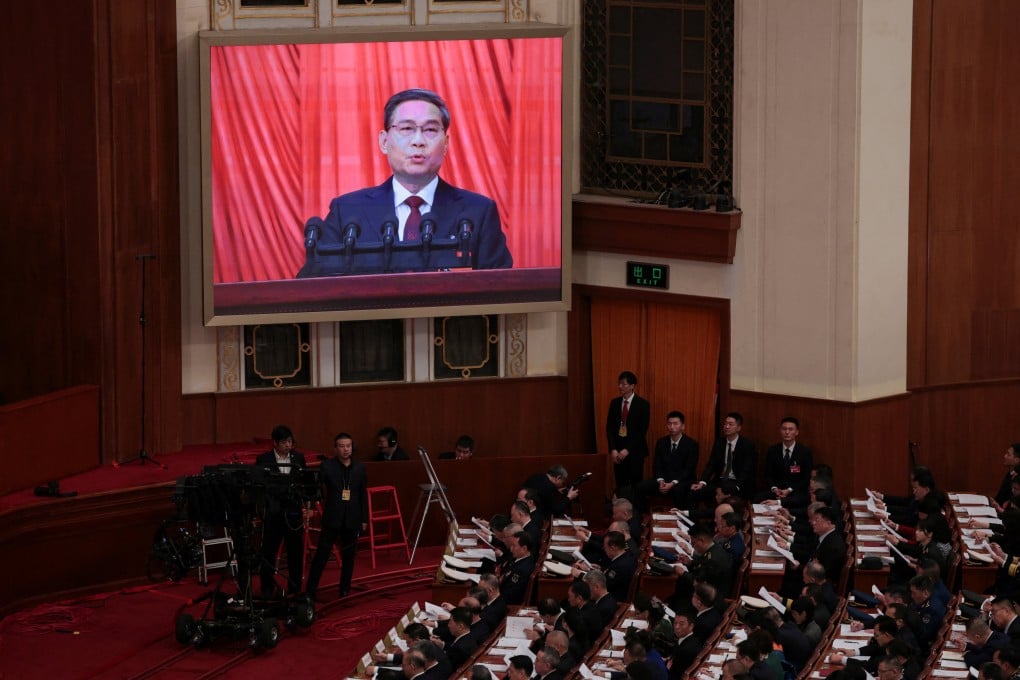Advertisement
‘Two sessions’ 2024: risks ahead but China’s economy to stay on long-term, tech-led course
- In his maiden work report to the National People’s Congress, Li Qiang says growth target of 5 per cent won’t be easy
- Funding for science to underpin push for self-reliance amid containment efforts by the US, analysts say
4-MIN READ4-MIN
17

Chinese Premier Li Qiang delivered a message of continuity when he presented his first work report to the country’s legislators on Tuesday, with China largely hewing to the same growth economic targets as last year and defying market hopes of stimulus.
Opening the annual session of the National People’s Congress in Beijing, Li said the government was aiming for around 5 per cent growth, roughly as much as it grew in 2023.
Amid deflationary risks, a prolonged downturn in the real estate market and dampened business confidence, Li said the government was “keenly aware” of the challenges ahead.
Advertisement
“In setting the growth rate, we have taken into account the need to boost employment and incomes and prevent and defuse risks,” he said. “Achieving this year’s targets will not be easy.”
“Global economic growth lacks steam and the regional hotspot issues keep erupting. This has made China’s external environment more complex, severe and uncertain,” he said.
Advertisement
But there was no announcement of any splashy quick fixes. The government would press on with a “proactive fiscal policy and prudent monetary policy”, the premier said, suggesting no major change in the leadership’s approach to the economy.
Advertisement
Select Voice
Select Speed
1.00x